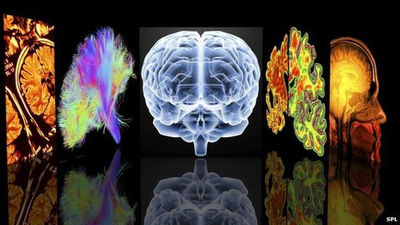Possibility that Alzheimer's disease was 'contagious' due to treatment that administered growth hormone extracted from corpses

Iatrogenic Alzheimer's disease in recipients of cadaveric pituitary-derived growth hormone | Nature Medicine
https://www.nature.com/articles/s41591-023-02729-2

First-ever transmitted Alzheimer's cases reported in new study
https://www.statnews.com/2024/01/29/first-transmitted-alzheimers-disease-cases-growth-hormone-cadavers/
Alzheimer's can pass between humans in rare medical accidents, suggests study | Alzheimer's | The Guardian
https://www.theguardian.com/society/2024/jan/29/alzheimers-can-pass-between-humans-in-rare-medical-accidents-suggests-study
In the late 20th century, cases were reported in which people who received growth hormone to treat short stature in childhood developed a rare neurodegenerative disease called Creutzfeldt-Jakob disease and died. Creutzfeldt-Jakob disease is a disease that causes involuntary movements of the whole body and dementia, and can occur sporadically due to genetic mutations, or can also develop due to ingestion of abnormal prion protein .
As a result of the investigation, it was found that the cause of Creutzfeldt-Jakob disease in these patients was the ``pituitary gland taken from a deceased person'' that was used to make a growth hormone preparation. Because the pituitary gland used was contaminated with abnormal prion protein, the growth hormone preparation was also contaminated with abnormal prion protein, and Creutzfeldt-Jakob disease was transmitted. Due to this discovery, administration of growth hormone preparations using cadavers has been prohibited since 1985, but it has been reported that more than 200 patients worldwide developed Creutzfeldt-Jakob disease as a result of this treatment.
In 2015, a study reported that the brains of people who died from Creutzfeldt-Jakob disease, which was caused by medical treatment, had an accumulation of beta-amyloid , which is seen in patients with Alzheimer's disease. This report suggests that growth hormone preparations derived from cadavers may have transmitted not only Creutzfeldt-Jakob disease but also Alzheimer's disease. However, because these patients died from Creutzfeldt-Jakob disease at a relatively young age, it was unclear whether they would have developed Alzheimer's disease in the future.
New research results on the new theory that ``Alzheimer's disease is transmitted from person to person'' - GIGAZINE

Now, a research team from University College London (UCL) reports on eight patients seen at the UK's National Prion Clinic between 2017 and 2022. None of the eight patients had developed Creutzfeldt-Jakob disease, although they had received cadaveric growth hormone as children.
Five of the patients developed early-onset Alzheimer's disease between the ages of 38 and 55, three had brain scan data that confirmed their disease, and two had biomarkers that met the diagnostic criteria for Alzheimer's disease. I had it. Furthermore, it has been reported that two of the three people who did not develop early-onset Alzheimer's disease had some kind of cognitive impairment, and the remaining one also had biomarkers that met the diagnostic criteria for Alzheimer's disease.
Furthermore, although DNA data was also recorded for five patients, only one had genetic risk factors for late-onset Alzheimer's disease, and none had the genetic mutation that causes early-onset Alzheimer's disease. did not.
From these results, the research team concluded that the cadaver-derived growth hormone preparations may have transmitted amyloid-beta protein to the subjects' brains, causing them to develop early-onset Alzheimer's decades later.
Co-author of the study, Professor John Collinge from UCL, said what happens in Alzheimer's disease is similar in many ways to diseases like Creutzfeldt-Jakob disease. 'We are not suggesting that you might get Alzheimer's disease. It is not contagious like a virus or bacteria and is basically a disease that is transmitted through human tissues or tissues that contain these agents. 'It only occurs if you are accidentally inoculated with an extract of human tissue. Fortunately, this is a very rare and unusual situation,' he said, explaining that at the time of writing, there was no risk of transmitting Alzheimer's disease. Did.

Related Posts:
in Science, Posted by log1h_ik






